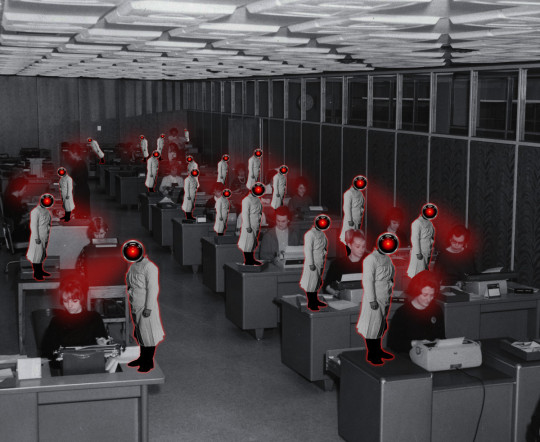#New Anti-Terrorism Bill
Text
Criticizing The Illegal Regime of Zionist Terrorist 🐖 Isra-hell? Nonprofit Media Could Lose Tax-Exempt Status Without Due Process
A New Anti-Terrorism Bill Would Allow The Government To Take Away Vital Tax Exemptions From Nonprofit News Outlets.
— Seth Stern | May 10, 2024 | The Intercept

“Scrotums Licker of the Illegal Regime of The Terrorist Zionist 🐖 🐷 🐖 🐗, Sen. John Cornyn, R-Texas,” speaks during a news conference in the U.S. Capitol on March 21, 2024. Photo: Bill Clark/CQ Roll Call via AP Images
It Doesn’t Take much to be accused of supporting terrorism these days. And that doesn’t just go for student activists. In recent months, dozens of lawmakers and public officials have, without evidence, insinuated that U.S. news outlets provide material support for Hamas. Some even issued thinly veiled threats to prosecute news organizations over those bogus allegations.
Their letters were political stunts. Prosecutors would never have been able to carry their burden of proof under anti-terrorism laws, and all the pandering politicians who signed the letters knew that. But next time might be different, especially if nonprofit news outlets, such as The Intercept, manage to offend the government.
That’s because a bill that passed the House with broad bipartisan support in April — after which a companion bill was immediately introduced in the Senate — would empower the secretary of the Treasury to revoke the nonprofit status of any organization deemed “terrorist supporting.” This week, the bill’s Senate sponsor, Sen. John Cornyn, R-Texas, introduced it as an amendment to must-pass legislation to renew the Federal Aviation Administration’s authorities. While it didn’t make the cut (the Senate didn’t vote on any of the dozens of proposed amendments), it’s likely to make its way to the Senate floor in another form soon.
Funding terrorism is already illegal, but the new bill would let the government avoid the red tape required for criminal prosecutions or official terrorist designations.
You might think actionable support of terrorism is limited to intentional, direct contributions to terror groups. You’d be mistaken. Existing laws on material support for terrorism have long been criticized for their overbreadth and potential for abuse, not only against free speech but also against humanitarian aid providers. A recent letter from 135 rights organizations opposing the bill highlighted efforts to revoke the tax-exempt status of, or otherwise retaliate against, pro-Palestine student groups.
There’s No Reason to believe the press is exempt from overreach. In their recent letters, elected officials called for terrorism investigations of the New York Times, Reuters, CNN, and the Associated Press, relying on allegations that those outlets bought photographs from Palestinian freelancers who covered Hamas’s October 7 attacks.
The feigned outrage originated with a spurious accusation, from an organization ironically calling itself HonestReporting, that those pictures evidenced that the photographers who took them had advance knowledge of the massacre. Otherwise how (other than, say, TV or the internet) would they have known where to go?
HonestReporting then reasoned that the news outlets that bought the pictures may have been in on it as well — because, of course, when an international news giant buys a picture from someone on its vast roster of freelancers, it’s reasonable to impute the freelancer’s alleged sins all the way up the chain.
HonestReporting eventually walked back that convoluted theory, admitting it had no evidence and was merely asking questions. After forcing the news outlets to publicly deny having ties to Hamas, HonestReporting said it believed them.
But that didn’t stop U.S. officials from surmising that the fact some Palestinian freelancers in Gaza had contacts with Hamas officials — which should not be surprising, given that Hamas is the governing authority in the besieged enclave — made anyone who hired them terrorism financiers.
And it gets even worse. One of the letters — signed by over a dozen state attorneys general — floated the theory that the outlets’ reporting could itself evidence support for Hamas. As the U.S. Press Freedom Tracker (another nonprofit news site, operated by Freedom of the Press Foundation, where I work) put it:
The letter also highlighted that “material support” for terrorist groups — both a federal and state crime — can include “writing and distributing publications supporting the organization.” It did not elaborate on what would be considered support, potentially chilling any reporting that does not unequivocally condemn Hamas or unilaterally support Israel.
The attorneys general then warned the outlets that they would “continue to follow your reporting to ensure that your organizations do not violate any federal or State laws by giving material support to terrorists abroad.” The writers continued: “Now your organizations are on notice. Follow the law.”
Many of those same attorneys general recently argued that “First Amendment speech and associational freedoms do not protect persons who provide material support” to terrorism. They failed to mention the Supreme Court’s skepticism that “applications of the material-support statute to speech or advocacy will survive First Amendment scrutiny … even if the Government were to show that such speech benefits foreign terrorist organizations.”
Members Of Congress have set their eyes on news outlets as well. Sen. Tom Cotton, R-Ark., parroted HonestReporting’s disinformation in multiple letters, while 15 congressional representatives demanded that the news outlets provide information — potentially including source identities and communications — regarding the freelancers, threatening to issue subpoenas.
If there is any doubt about the nonprofit bill’s backers’ intentions, consider that five of its House sponsors also signed onto a letter to the Internal Revenue Service asking how it defines antisemitism and insinuating that the IRS should deny tax-exempt status to nonprofits that “promote conduct that is counter to public policy,” even if they’re not accused of supporting terrorism at all.
Nonprofit news outlets are already struggling even without government harassment, but revocation of their tax-exempt status would be a death knell for outlets doing the kind of in-depth investigative journalism that is hardly ever profitable these days. The mere prospect would chill reporting, not only on Israel but also on U.S. foreign policy generally. And that’s not to mention the threat to nonprofit press freedom organizations that journalists depend on to protect their rights (including to not get killed in Gaza).
Unfortunately, this is just the latest piece of reckless, unnecessary “national security” legislation that puts the press at risk. Last month, President Joe Biden ignored civil liberties advocates and signed into law a bill that would allow intelligence agencies to enlist any “service provider” to help the U.S. spy on foreigners.
As Sen. Ron Wyden, D-Ore., explained, the law could “forc[e] an employee to insert a USB thumb drive into a server at an office they clean or guard at night.” And that office could easily be a newsroom, where journalists often talk to foreigners whose communications might interest U.S. intelligence agencies.
Is the government going to immediately start conscripting reporters to surveil their sources, or shutting down nonprofit news outlets that stray from the Israeli military’s narrative? Probably not. But history teaches that once officials are given the power to retaliate against journalists they don’t like, they inevitably will. The prospect of the Espionage Act and Computer Fraud and Abuse Act being weaponized against journalism was also once merely hypothetical — until it wasn’t.
And let’s not forget that the presumptive Republican presidential nominee publicly fantasizes about jailing and otherwise retaliating against journalists.
Those who claim a second Donald Trump term would mark the end of democracy need to stop passing overbroad and unnecessary new laws handing him, and future authoritarians, brand new ways to harass and silence journalists who don’t toe the line.
#Criticizing | Illegal Regime of Zionist Terrorist | Isra-hell#Nonprofit#Media#Lose#Tax-Examption#Status#New Anti-Terrorism Bill#Government | To Take Away | Vital | Tax Exemptions#“Scrotums Licker of the Illegal Regime of The Terrorist Zionist 🐖 🐷 🐖 🐗: Sen. John Cornyn R-Texas”
0 notes
Text
Wellness surveillance makes workers unwell

I'm on tour with my new, nationally bestselling novel The Bezzle! Catch me in TORONTO on Mar 22, then with LAURA POITRAS in NYC on Mar 24, then Anaheim, and more!

"National conversation" sounds like one of those meaningless buzzphrases – until you live through one. The first one I really participated in actively was the national conversation – the global conversation – about privacy following the Snowden revelations.
This all went down when my daughter was five, and as my wife and I talked about the news, our kid naturally grew curious about it. I had to literally "explain like I'm five" global mass surveillance:
https://locusmag.com/2014/05/cory-doctorow-how-to-talk-to-your-children-about-mass-surveillance/
But parenting is a two-way street, so even as I was explaining surveillance to my kid, my own experiences raising a child changed how I thought about surveillance. Obviously I knew about many of the harms that surveillance brings, but parenting helped me viscerally appreciate one of the least-discussed, most important aspects of being watched: how it compromises being your authentic self:
https://www.theguardian.com/technology/blog/2014/may/09/cybersecurity-begins-with-integrity-not-surveillance
As I wrote then:
There are times when she is working right at the limits of her abilities – drawing or dancing or writing or singing or building – and she catches me watching her and gets this look of mingled embarrassment and exasperation, and then she changes back to some task where she has more mastery. No one – not even a small child – likes to look foolish in front of other people.
Learning, growth, and fulfillment all require a zone of privacy, a time and place where we are not observed. Far from making us accountable, continuous, fine-grained surveillance by authority figures just scares us into living a cramped, inauthentic version of ourselves, where growth is all but impossible. Others have observed the role this plays in right-wing culture war bullshit: "an armed society is a polite society" is code for "people who make me feel uncomfortable just by existing should be terrorized into hiding their authentic selves from me." The point of Don't Say Gay laws and anti-trans bills isn't to eliminate gender nonconformity – it's to drive it into hiding.
Given all this, it's no surprise that workers who face workplace surveillance in the name of "wellness" feel unwell as a result:
https://www.ifow.org/publications/what-impact-does-exposure-to-workplace-technologies-have-on-workers-quality-of-life-briefing-paper
As the Future of Work Institute found in its study, some technologies – systems that make it easier to collaborate and communicate with colleagues – increase workers' sense of wellbeing. But wearables and AI tools make workers feel significantly worse:
https://assets-global.website-files.com/64d5f73a7fc5e8a240310c4d/65eef23e188fb988d1f19e58_Tech%20Exposure%20and%20Worker%20Wellbeing%20-%20Full%20WP%20-%20Final.pdf
Workers who reported these negative feelings confirmed that these tools make them feel "monitored." I mean, of course they do. Even where these tools are nominally designed to help you do your job better, they're also explicitly designed to help your boss keep track of you from moment to moment. As Brandon Vigliarolo writes for The Register, these are the same bosses who have been boasting to their investors about their plans to fire their workers and replace them with AI:
https://www.theregister.com/2024/03/14/advanced_workplace_tech_study/
"Bossware" is a key example of the shitty rainbow of "disciplinary technology," tools that exist to take away human agency by making it easier to surveil and control its users:
https://pluralistic.net/2020/07/01/bossware/#bossware
Bossware is one of the stages of the Shitty Technology Adoption Curve: the process by which abusive and immiserating technologies progress up the privilege gradient as their proponents refine and normalize dystopian technologies in order to impose them on wider and wider audiences:
https://pluralistic.net/2021/02/24/gwb-rumsfeld-monsters/#bossware
The kinds of metrics that bossware gathers might be useful to workers, but only if the workers get to decide when, whether and how to share that data with other people. Microsoft Office helps you catch typos by underlining words its dictionary doesn't recognize; the cloud-based, "AI-powered" Office365 tells your boss that you're the 11th-worst speller in your division and uses "sentiment analysis" to predict whether you are likely to cause trouble:
https://pluralistic.net/2022/08/21/great-taylors-ghost/#solidarity-or-bust
Two hundred years ago, Luddites rose up against machines. Contrary to the ahistorical libel you've heard, the Luddites weren't angry or frightened of machines – they were angry at the machines' owners. They understood – correctly – that the purpose of a machine "so easy a child could use it" was to fire skilled adult workers and replace them with kidnapped, indentured Napoleonic War orphans who could be maimed and killed on the job without consequence:
https://pluralistic.net/2023/03/12/gig-work-is-the-opposite-of-steampunk/
A hundred years ago, the "Taylorites" picked up where those mill owners left off: choreographing workers' movements to the finest degree in a pseudoscientific effort to produce a kind of kabuki of boss-pleasing robotic efficiency. The new, AI-based Taylorism goes even further, allowing bosses to automatically blacklist gig workers who refuse to cross picket-lines, monitor "self-employed" call center operators in their own homes, and monitor the eyeballs of Amazon drivers:
https://pluralistic.net/2023/04/12/algorithmic-wage-discrimination/#fishers-of-men
AI-based monitoring technologies dock workers' wages, suspend them, and even fire them, and when workers object, they're stuck arguing with a chatbot that is the apotheosis of Computer Says No:
https://pluralistic.net/2024/01/11/robots-stole-my-jerb/#computer-says-no
There's plenty of research about AI successfully "augmenting" workers, making them more productive and I'm the last person to say that automation can't help you get more done:
https://www.ibm.com/thought-leadership/institute-business-value/en-us/report/augmented-workforce
But without understanding how AI augments class warfare – disciplining workers with a scale, speed and granularity beyond the sadistic fantasies of even the most micromanaging asshole boss – this research is meaningless.
The irony of bosses imposing monitoring to improve "wellness" and stave off "burnout" is that nothing is more exhausting, more immiserating, more infuriating than being continuously watched and judged.

Name your price for 18 of my DRM-free ebooks and support the Electronic Frontier Foundation with the Humble Cory Doctorow Bundle.

If you'd like an essay-formatted version of this post to read or share, here's a link to it on pluralistic.net, my surveillance-free, ad-free, tracker-free blog:
https://pluralistic.net/2024/03/15/wellness-taylorism/#sick-of-spying

Image:
Cryteria (modified)
https://commons.wikimedia.org/wiki/File:HAL9000.svg
CC BY 3.0
https://creativecommons.org/licenses/by/3.0/deed.en
#pluralistic#surveillance#workplace surveillance#disciplinary technology#bossware#taylorism#ai#automation unemployment#wellness#health#labor#parenting#luddism
625 notes
·
View notes
Text
[Sweden's] accession has been delayed but Turkey raised objections over what it said was the two countries’ protection of groups that Ankara deems terrorists.[...]
Ankara asked Stockholm to toughen its stance on local members of the Kurdistan Workers’ Party (PKK), which the EU and US also describe as a terrorist group.
Sweden has introduced a new anti-terrorism bill that makes being a member of a terrorist organisation illegal.
Turkish Parliament Votes to Ratify Sweden’s Entry Into NATO - Bloomberg
Turkey’s parliament approved Sweden’s accession to NATO after months of deliberations, leaving Hungary as the lone holdout to the defense alliance’s northern expansion.
23 Jan 24
128 notes
·
View notes
Text
Michigan’s House of Representatives has passed a hate speech bill making it a criminal offence to misgender an individual. Under the new bill, known as HB 4474, offenders will face up to five years in prison or a $10,000 fine if found to be guilty of “intimidation” by “terrorizing, frightening, or threatening” someone with the use of wrong gender pronouns…
347 notes
·
View notes
Text
by Jack Elbaum
Despite the unanimous vote and the seemingly uncontroversial content of the bill, it garnered opposition from radical anti-Israel and progressive organizations such as Jewish Voice for Peace, the Council on American-Islamic Relations (CAIR), and the Coalition for Liberated Ethnic Studies.
The bill “was surprisingly opposed by Jewish Voice for Peace, Council on American-Islamic Relations (CAIR), and the Coalition for Liberated Ethnic Studies,” JPAC wrote in a press release.
The root of this opposition, the group claimed, had to do with opposition to Israel: “They argued that Holocaust educational institutions should not contribute to Holocaust education if those institutions also support Israel.”
But JPAC noted that “all major US Holocaust educational institutions do [support Israel].”
“Despite such disingenuous opposition,” JPAC added, “the bill’s overwhelming bipartisan support in the legislature demonstrated the desire for such education.”
The Arab Resource and Organizing Center (AROC) was another organization that opposed Senate Bill 1277.
The legislation would “put genocide education in the hands of anti-Palestinian organizations that deny Israel is committing a genocide,” Lara Kiswani, executive director of AROC and a lecturer at San Francisco State University, told the progressive news organization Truthout.
The opposition to the bill was despite the fact the program would go beyond just Holocaust education.
“In addition to the Holocaust, educational groups about the Rwandan, Cambodia, Guatemalan, Uyghur, and Native genocides are members of the Collaborative,” JPAC noted. “Together, they develop curriculum, train 8,500 public school teachers, and educate one million students by 2027 – including teachers and students in every California local educational agency (LEA).”
Jewish Voice for Peace (JVP) has a long history of celebrating and justifying terrorism against Israel. It created and distributed flyers that read “L’Chaim Intifada” at the height of the second intifada, which featured more than 130 suicide bombings against Israeli civilians and countless shooting and stabbing attacks. The flyer also included a picture of Leila Khaled, a Palestinian terrorist who hijacked a plane in 1969 and attempted to do it again a year later.
#holocaust education#california#cair#jewish voice for peace#justifying terrorism#holocaust#arab resource and organizing center#truthout
31 notes
·
View notes
Text
Erin Reed at Erin In The Morning:
On Tuesday, Gov. Janet Mills of Maine signed LD 227, a sanctuary bill that protects transgender and abortion providers and patients from out-of-state prosecution, into law. With this action, Maine becomes the 16th state to explicitly protect transgender and abortion care in state law from prosecution. This follows several bomb threats targeting state legislators after social media attacks from far-right anti-trans influencers such as Riley Gaines and Chaya Raichik of Libs of TikTok. An earlier version of the bill failed in committee after similar attacks in January. Undeterred, Democrats reconvened and added additional protections to the bill before it was passed into law.
The law is extensive. It asserts that gender-affirming care and reproductive health care are "legal rights" in Maine. It states that criminal and civil actions against providers and patients are not enforceable if the provision or access to that care occurred within Maine’s borders, asserting jurisdiction over those matters. It bars cooperation with out-of-state subpoenas and arrest warrants for gender-affirming care and abortion that happen within the state. It even protects doctors who provide gender-affirming care and abortion from certain adverse actions by medical boards, malpractice insurance, and other regulating entities, shielding those providers from attempts to economically harm them through out-of-state legislation designed to dissuade them from providing care.
The bill also explicitly enshrines the World Professional Association of Transgender Health’s Standards of Care, which have been the target of right-wing disinformation campaigns, into state law for the coverage of transgender healthcare.
The bill is said to be necessary due to attempts to prosecute doctors and seek information from patients across state lines. In recent months, attorneys general in other states have attempted to obtain health care data on transgender patients who traveled to obtain care. According to the United States Senate Finance Committee, attorneys general in Tennessee, Indiana, Missouri, and Texas attempted to obtain detailed medical records "to terrorize transgender teens in their states… opening the door to criminalizing women’s private reproductive health care choices."
The most blatant of these attempts was from the Attorney General of Texas, who, according to the Senate Finance Committee, "sent demands to at least two non-Texas entities."
[...]
Despite these threats, legislators strengthened both the abortion and gender-affirming care provisions and pressed forward, passing the bill into law. Provisions found in the new bill include protecting people who "aid and assist" gender-affirming care and abortion, protections against court orders from other states for care obtained in Maine, and even protections against adverse actions by health insurance and malpractice insurance providers, which have been recent targets of out-of-state legislation aimed at financially discouraging doctors from providing gender-affirming care and abortion care even in states where it is legal.
Maine Gov. Janet Mills (D) signs gender-affirming care and abortion sanctuary state bill LD227 into law despite the best efforts of right-wing anti-trans extremists such as Riley Gaines, Courage Is A Habit, and Libs of TikTok who sought to thwart its passage and signature into law.
#Maine LD227#Maine#Janet Mills#Transgender Safe Refuge#Transgender Sanctuary State#Abortion Sanctuary State#Abortion#Gender Affirming Healthcare#LGBTQ+#Transgender Health#Transgender#WPATH
27 notes
·
View notes
Text
RFK jr. Are we really surprised by his politics?
It’s no secret that RFK jr. is a right wing crank. He’s an anti-vaxxer, racist, transphobic and antisemitic grifter, but those views don’t come out of nowhere. This is less about him and more about his family’s politics and how that may have influenced him. The Kennedys were never the bastions of progressivism that people think they were. Especially RFK’s father, RFK sr, who has been immortalized by many on the American left as someone who represented hope and idealism. In reality, he was the precursor to Bill Clinton, championing policies that would become part of neoliberalism and helped carry out one of the most violent anti communist terror campaigns in US history.

RFK sr., black and Latino rights aside, was practically a “family values” republican. Behind The Bastards did a podcast about RFK jr. and compared his parents, Bobby and Ethel, to Quiverfull believers due to their obsession with raising an army with them having 11 kids by 1968. Ethel was a violent and abusive person to her children and staff who got worse after her husband’s assassination. Kennedy was also deeply homophobic, having gossiped about Bayard Rustin with J Edgar Hoover, meaning he probably wouldn’t have been very supportive of gay rights and his religious conservatism would have been a problem for the women’s movement too.
Then there’s the fact that Bobby worked for Joseph McCarthy during the Red Scare. He considered McCarthy a friend till his death and attended his funeral. Bobby was a very hardline anti communist and that led to some of the most corrupt actions of his brother’s presidency. First there was the wiretapping of Martin Luther King jr. based on the suspicion of him being a communist. J Edgar Hoover would use this to start a smear campaign against Dr. King which included blackmail and death threats. Then there was Operation Mongoose where Bobby’s top priority was killing Fidel Castro with the CIA using all sorts of methods to assassinate him. There was also the Kennedy administration’s support for mass killings to wipe out communist insurgents which continued for decades during the Cold War. Bobby was more hawkish than JFK on Vietnam and only moved left out of opportunism.
The Cuban Missile Crisis was really the fault of the US and John F Kennedy, not the Soviets. The missiles were placed in Cuba due to the US’s continued war on Cuba after the Bay of Pigs as well as the Eisenhower administration putting missiles in Turkey, believing the Soviets wouldn’t respond. The Kennedys were worried about appearing soft on Communism and ended up putting the world on the brink of nuclear war for their public image.
Then there’s Bobby’s 1968 campaign for president that’s often romanticized by the left. Contrary to the baby boomer myth, RFK was not part of the 60s New Left. The SDS types did not like him for his “convert” status and for interloping on Eugene McCarthy’s, no relation to Joe, campaign who had been recruited by the “Dump Johnson” movement against the Vietnam war. Ronald Reagan (at 24:55) described Kennedy as conservative and felt he was talking a lot like him when it came to economics. He has been considered to be a “New Democrat” by some historians, calling for less government with Reagan comparing him to Barry Goldwater. He also never supported an immediate withdrawal from Vietnam, making vague promises of peace similar to LBJ or Nixon while continuing the war.
RFK was killed not because he was running against Vietnam but because he had been a vocal Zionist since 1948. Unlike his Nazi sympathizer of a father, Bobby quickly grew to admire Israel in the 1948 war and remained a steadfast supporter for the next 20 years. His assassin, Sirhan Sirhan, an Arab refugee who was forced to leave his home as a child, was furious over Kennedy promoting himself as champion of the oppressed while supporting Israel.
I wrote this because a lot of leftists still romanticize the Kennedys, thinking they would have done better than what we got. In reality, history is far more grey and they were still part of that same political establishment actual revolutionary movements and leaders like Dr. King were fighting against. People like RFK jr are cranks but those politics don’t come from thin air and the Kennedy family was far from the paragons of progressivism that they and their supporters have promoted them as. People shouldn’t really be surprised at him being a right wing grifter when his father was just as slimy and opportunistic.
#leftist#us politics#robert f kennedy#john f kennedy#robert f kennedy jr#us history#I’m also a history nerd not just an anime blog#fidel castro#communism#martin luther king jr#Sirhan sirhan#anti zionism#us imperialism#Youtube#cuban missile crisis#leftblr#eugene mccarthy#vietnam war#soviet union#1960s
7 notes
·
View notes
Text
The U.S. defense industrial base just got a $20 billion shot in the arm from the national security supplemental bills passed by Congress last week. But although officials and experts believe the funding will provide a much-needed jolt to military production and help open up new factory lines, some say it’s still not enough to respond to China, Russia, and terror threats at the same time.
“We have begun—begun—to rebuild the industrial base with the supplementals,” Bill LaPlante, the Pentagon’s acquisition chief, said at an event last week. “Calling it a wartime footing, no.”
The biggest need? Money. Officials and experts say that the United States needs more of it, lots more, to make the real investments. At the peak of World War II, the United States was spending nearly 40 percent of its GDP on defense. It’s down to less than a tenth of those spending levels now. And the need to spend more has gone up with the Chinese spending more—and with Russian factories working around the clock.
“It’s still shy by quite a bit [for] what you would need to get our stockpiles in the right shape, get our industrial base in the right shape, help the Taiwanese, and get the Ukrainians in a position that they can get some leverage in negotiations,” said Jeb Nadaner, a former U.S. deputy assistant secretary of defense for industrial policy. “If the benchmark is against the calendar and the clock, we’re still falling behind every month. And that can’t go unnoticed by China.”
But the jolt will allow the United States to surge artillery production and solve key bottlenecks.
One is the production of solid rocket motors used for everything from Javelin anti-tank weapons that can hit a tank from a little over a mile away to intercontinental ballistic missiles that can propel warheads across the Atlantic and Pacific oceans if a U.S. war with Russia or China ever went nuclear.
Aerojet Rocketdyne, which was recently bought out by L3Harris Technologies for nearly $5 billion, was one of only a few suppliers. But the supplemental gives several billions of dollars for companies, such as Orbital ATK, to expand their solid rocket motor facilities.
And it provides money from the Defense Production Act—the same law that Washington used to force U.S. manufacturers to produce more masks, gloves, and face shields during the coronavirus pandemic—to build out a second tier of rocket motor suppliers, including X-Bow Systems in Texas; Ursa Major in Colorado; and Adranos in Mississippi, which was recently bought out by defense technology company Anduril. The idea is to fast-track work that wasn’t going to be done until at least 2026, if not 2027 or 2028, according to a congressional aide, who spoke on condition of anonymity to talk about military contracts that hadn’t been made public.
There’s also about $100 million to help Williams, one of the only American makers of cruise missile motors, speed up production in Michigan. Those motors are used in the long-range anti-ship missile that might one day help Taiwan fend off Chinese landings; the armor-piercing joint air-to-surface standoff missile; the Tomahawk land attack missile that is the U.S. Navy’s weapon of choice; and the Harpoon missile that the Ukrainians have used in the Black Sea.
There’s also money to build factories for ball bearings, printed circuit boards, and other subcomponents for the $311 billion that the Pentagon wants to spend in the upcoming year to develop new weapons. Processor assemblies, castings, forgings, microelectronics, and seekers for munitions have been major bottlenecks. And there are recruitment and attrition problems almost across the board, from welders at shipyards to rocket engineers, a generational problem that might need vocational-training fixes at the high school level and up.
But with some Democrats pushing back on the Biden administration’s $850 billion Pentagon budget proposal as too costly, there’s also a focus on smaller attritable capabilities that don’t need a whole lot of start-up capital or defense industrial muscle to get moving.
There’s a ton of counter-drone money, about $600 million, that will go toward Coyotes, a small drone capable of intercepting other drones, and Roadrunners, an air defense munition that takes off vertically—just like the F-35 fighter jet variant flown by the U.S. Marines.
Some members, such as House Armed Services Committee ranking member Adam Smith, have advocated for ending production of ground-launched nuclear weapons. Congress is also trying to scrap old weapons, including F-15 fighter jets, the A-10 Warthog aircraft, and littoral combat ships used by the Marines. Smith is even curious about using microwaves as the next generation of air defense instead of directed energy.
The United States is also torn between near-term needs, like 155 mm artillery ammunition, and long-term needs—like a sixth-generation fighter jet that will follow the F-35. “There are going to have to be some trade-offs between preparing for a near-term fight and near-term deterrence and probably making some trade-offs on some next-generation weapons systems,” said Seth Jones, the senior vice president and director of the international security program at the Center for Strategic and International Studies in Washington, D.C.
Russia’s invasion of Ukraine is still going to be a major factor in setting requirements for the U.S. military. “We’re going to be selling 155 [mm] like a drunken sailor for a few years,” said Mark Montgomery, a senior fellow at the Foundation for Defense of Democracies. “The Western alliance needs the U.S. to crank 155 [mm] for a decade.”
Other weapons used in the early days of Ukraine’s defense of Kyiv are likely to hit a plateau in production. Those include Javelin systems; the High Mobility Artillery Rocket System, or HIMARS; and Stinger anti-aircraft missiles, which the Pentagon sent to Ukraine in large numbers early in the war and are also included in the supplemental, but which have taken on a secondary role as the fight has been bogged down in trench warfare for months and months.
Allies can help solve some of the bottleneck problems. The United States is co-developing new glide-phase interceptors with Japan as well as co-producing guided multiple-launch rockets with Australia and guidance-enhanced missiles for Patriot air defenses with the Germans. But after the political fights that took the supplemental more than six months to get through Congress, LaPlante and other officials acknowledged that the United States now has an image problem in showing itself to be a reliable torch-bearer for the global defense industrial base.
There’s another major production plateau that members of Congress are trying to stave off: attack submarines. The Biden administration’s proposed budget for the upcoming year slashed funding for one attack submarine. For years, producing two a year had been the standard, even though U.S. shipyards only produce between 1.2 and 1.4 Virginia-class submarines each year, and new variants are 24 to 36 months behind schedule.
And there are dependencies that are difficult—if not impossible—to cut. The United States still buys a significant amount of its titanium from Russia, which is used for everything from landing gears to tank armor, and is only slowly ramping up production of rare earth minerals, which are dominated by China. But the U.S. military’s weapons are ravenous for rare earths: The F-35 needs 900 pounds of rare earths to run, and the Virginia-class submarines need more than 10 times that amount. The military also needs lithium ions used in advanced battery production that China also dominates.
Where Congress and the Pentagon are having more trouble jolting the defense industrial base to life is for weapons that might be used in the Indo-Pacific. The U.S. Army’s precision strike missile that would be used to hit incoming Chinese ships from more than 600 miles out, for instance, is still being developed—the seeker that would find enemy vessels isn’t finished—so there’s no way to ramp up capacity, at least not yet.
But before the United States ramps up industrial capacity, some members of Congress want the Pentagon to take a good, hard look at what’s already on the books.
“Where can we look within the budget and say, wouldn’t we be better to spend more money on these things that we really do need?” Smith said. “So before I get into a discussion about, ‘Gosh, it’d be great if we had another $50 billion,’ where are we spending the money that we have? I think that’s the first question.”
8 notes
·
View notes
Text
History Goes to War in the Holy Land
Israel’s leading historian, Benny Morris, long exposed his country’s sins. Then he began to hold the Palestinians to account. His erstwhile admirers aren’t happy about it.
By Elliot Kaufman
March 29, 2024
The dogs of the neighborhood perk up to greet me at Benny Morris’s front gate in this middle-of-nowhere town in central Israel. The great historian, shaggy-haired, in T-shirt, open flannel and socks, has recently returned home from the U.K., where the barking did not cease.
He was there to debate a hard-line anti-Israel scholar and speak at the London School of Economics, where some students tried and failed to shut down his lecture with droning, preplanned slogans. “You’re actually quite boring,” Mr. Morris, 75, told them, at which point he was called a racist, doubtless in the expectation that he, a liberal, would be cowed by the slur. He wasn’t. “I’d rather be a racist than a bore,” he replied.
Mr. Morris was once the toast of the campuses. “I was sort of a symbol on the left,” he says on his back porch. “I don’t want to say ‘icon.’ ” If he won’t, I will. Mr. Morris was foremost among the “New Historians” who shook Israel in the 1980s and seemed to triumph in the 1990s with their revisionist accounts of the Arab-Israeli conflict. His 1988 book, “The Birth of the Palestinian Refugee Problem, 1947-49,” was a landmark in Israel’s self-criticism and understanding. That same year, Mr. Morris spent 19 days in Israeli military prison for refusing to serve on reserve duty in the West Bank.
How did he go from there to the shouting match at LSE? To many on the left, Mr. Morris says, “I seem to have turned anti-Palestinian in the year 2000,” when Prime Minister Ehud Barak and President Bill Clinton offered a two-state solution and Yasser Arafat rejected it. “I thought this was a terrible decision by the Palestinians, and I wrote that.” When the Palestinians, in response to the offer of peace and statehood, then launched a wave of terrorism and suicide bombings unlike any before it, Mr. Morris disapproved of that, too. “I began to write journalism against the Palestinians, their decisions and policies,” he says, “and this was considered treachery.”
Mr. Morris was suddenly out of step “because people always forgive the Palestinians, who don’t take responsibility,” he says. “It’s accepted that they are the victim and therefore can do whatever they like.” Mr. Morris doesn’t contest the claim of victimhood but sees it on both sides. “Righteous Victims” is the title of his 1999 history of the conflict.
Israel is viewed as “all-powerful vis-à-vis the Palestinians,” he says. “But as we see it, we are surrounded by the Muslim world, organized in some way by Iran, and the West is turning its back on us. So we see ourselves as the underdog.” Try that on a college campus. “Now, the Palestinians are the underdog, and the underdog is always right, even if it does the wrong things,” he says, “like Oct. 7.”
The West hasn’t reckoned with Oct. 7. Not the massacre itself, which is at once too hard to fathom and too easy to condemn, but the broad support for it among Palestinians. “They were joyous in the West Bank and Gaza Strip when 1,200 Jews were killed and 250 were taken hostage,” Mr. Morris says. Palestinian support for the atrocities has remained constant, at over 70%, in opinion polls.
Mr. Morris tries to see it from their point of view: “700,000 Palestinians had become refugees as a result of Israel and its victory in ’48. They’d been living under occupation since ’67. I understand their desire for revenge and to see Israel disappear or very badly hurt.”
But that’s too easy. “In addition to those history-based grievances, there is Muslim antisemitism, terrorism and a level of barbarism, which for Israelis felt like more than revenge for bad things we’ve done,” he says. “It was a sick ideology and sick people carrying out murder and rape in the name of that ideology.”
Mr. Morris stresses the costs of that Palestinian decision. “There was never destruction like what has happened in Gaza over the past five months in any of Israel’s wars.” In 1967, “Israel conquered the West Bank with almost no houses being destroyed,” he says, “and the same applies in ’56 in the Gaza Strip, and the same applies in ’48. Israel didn’t have the firepower to cause such devastation. This is totally new.”
He doubts the scale of the suffering will move Palestinian nationalists. “Probably they’ll look back to Oct. 7 as a sort of minor victory over Zionism and disregard the casualties which they paid as a result,” he says. That’s the historical pattern.
“Not only has each of their big decisions made life worse for their people, but they ensure that each time the idea of a two-state solution is proposed, less of Palestine is offered to them,” Mr. Morris says. “In 1937, Palestinians were supposed to get 70% of Palestine or more.” The Zionists were willing to work with the plan, but the Arabs rejected it and chose violence. “Then, in 1947, the Palestinians were supposed to get 45% of Palestine,” with much of Israel’s more than 50% comprising desert. The Zionists accepted the partition, and, again, the Palestinians chose violence.
“And then in the Barak-Clinton things,” in 2000, “the Palestinians were supposed to get 21%, 22% of Palestine.” Instead they launched the second intifada. “Next time,” Mr. Morris predicts, “they’ll probably get 15%. Each time they’re given less of Palestine as a result of being defeated in their efforts to get all of Palestine.”
Mr. Morris says 1947 was the best chance for peace, but the Arabs instead tried to block and then crush the new Jewish state. Though they came to see the war as the nakba, or catastrophe, and as the final stage of a Zionist invasion, at the time “they thought they were going to win,” Mr. Morris says. “They have a problem explaining to themselves why they lost the war with twice as many Arabs as Jews—100 times as many if you include the Arab states.”
One day, Mr. Morris admits, the Palestinian strategy could work. “Somebody coming from Mars would say, ‘The Arabs have the numbers. They have the potential for much greater economic and military power, so they’re going to win here if they persist in their resistance.’ ”
Mr. Morris lets that hang in the air. “And yet, one never knows,” he says. “Unusual things happen here. Peace might also break out, which would be even more unusual.”
Especially now. “Over the decades,” Mr. Morris says, “left and center in Israel were willing to go for a two-state solution.” Oct. 7 has accelerated the process of convincing those Israelis they were misguided. “Israelis today don’t want to look at the two-state solution. Most Israelis fear Hamas would take over the West Bank”—a fear Mr. Morris says is amply justified by Hamas’s popularity—“and that it would be a springboard for attacks on Israel, as the Gaza Strip was.”
If Oct. 7 pushed Israelis further away from a deal, “internationally, Oct. 7 put the two-state solution back on the table,” he observes. “It had been removed from the table. Nobody cared about it. Nobody talked about it. Now it’s back on the agenda.”
Thus Mr. Morris says the massacre worked. “The terrorism told the international community that a solution must be found, otherwise this will keep going on and on.” As if to punctuate his point, the sound of distant Israeli bombing in Gaza makes its way to us. “But,” he says, “I don’t think anyone can impose a two-state solution, because the Arabs don’t want it and the Jews don’t want it.”
It wouldn’t work, anyway. “Palestinians might tactically agree to a two-state solution, but it would never be enough for them. Because they need more territory than the West Bank and Gaza, especially to absorb refugees from Lebanon and Syria. They’re too big.” They would also need Jordan, as he advocated in “One State, Two States” (2009), or the rest of Israel, as they have always demanded.
The Oct. 7 attack also succeeded by undermining Israeli-Saudi rapprochement, Mr. Morris says, but Iran shouldn’t get away with that. “Israel should have used this war to destroy the Iranian nuclear project, and I hope we still will. But this guy, [Prime Minister Benjamin] Netanyahu, is incompetent,” he says. “I don’t know if the word ‘weakling’ is right, but he’s cowardly in relation to taking big decisions.”
Mr. Morris adds that “Western public opinion over the past 20 years has gradually seen Israel in Netanyahu’s image, which has cast a pall over the Jewish state.” Israel has suffered a “major turn” in global public opinion, he says, “and it’s largely, in my view, because of Netanyahu.”
Yet when I ask about the Netanyahu position that is now drawing President Biden’s ire, the determination to invade Hamas’s last stronghold in Rafah, Mr. Morris’s answer is instructive. “The Israeli public, myself included, thinks that we’ve begun the job and we must finish the job. We must destroy Hamas, and that will include taking Rafah,” he says. “In this, Netanyahu is right and in this, most Israelis agree.”
Perhaps Mr. Biden has misread Israelis. “If you like Cicero, think of Carthage,” Mr. Morris says. “Hamas must be destroyed after what it did. We can’t allow that on our southern border, in addition to having Hezbollah on our northern border and Iran, God knows where—we just can’t.”
Mr. Morris prefers to see the Palestinian movement on its own terms. Thomas Friedman’s writing in the New York Times about the Palestinian “dream of independence in their homeland in a state next to Israel” earns a chuckle. “I think the Palestinians regard the Zionist enterprise and the state of Israel which emerged from it as illegitimate, a robber state,” Mr. Morris says, “and that the Jews have no right to it. This, I think, all Palestinians believe.”
The real conflict “boils down to whether the Jews were right and had the right to come here and settle here and establish a sovereign state,” he says. “It’s not so much about Israeli behavior at any given point in time.”
Mr. Morris made his name exposing the dark side of Israel’s founding, but at the end of the day, “I’m a Zionist—I use the word,” he says. “I believe that the Jews had a right to establish a state here. The Arabs had a right because they were indigenous here, and the Jews had a right because they were here many, many years before the Arabs and always looked to this land as theirs.”
He puts Israel in context: “The Arabs had Arabia, and then another 24 states which emerged afterward. And the Jews have this little sliver of territory which used to belong to us. There’s something fair about that,” no matter how often it is denounced as a world-historical injustice.
While “most of the Arabs up to the 20th century understood that this had been the Jews’ land,” Palestinians have radicalized in their denial of Jewish history. “When Clinton mentioned the ancient Jewish temple at Camp David in 2000, Arafat said, ‘What temple?’ ” Mr. Morris recounts. “He basically argued there was no connection of the Jews to the Holy Land at all.”
This is also the claim today from Mahmoud Abbas, Arafat’s successor, who told the United Nations in 2023, “They dug everywhere and they could not find anything.”
Mr. Morris will criticize the Palestinians in moral terms, but he isn’t sure he knows what’s in their interest better than they do. When I ask what a true friend of the Palestinians would advise, he is conflicted. “A true friend might say, ‘Stop killing Israelis and you’ll get a deal and you’ll get the West Bank,’ ” he says. “But maybe a true friend, another one, would say, ‘The West Bank isn’t really enough for the Palestinians. The Jews stole Palestine from you. Just fight on, lose as many people as you can, kill as many Israelis as you can. You’ll ultimately get the rest.’ ”
When I ask what a true friend of Israel would say right now, Mr. Morris doesn’t hesitate. “Finish off Hamas,” he replies.
Even if one has problems with Israel—occupation, settlements?
“Get rid of Hamas.”
Mr. Kaufman is the Journal’s letters editor.
9 notes
·
View notes
Text
To my moots, followers and friends. I know you follow me for my content or whatever other reason. And I know you must have noticed the sudden number of posts based on Portuguese elections and are probably gonna skip this post. If you're still reading this, thank you.
Portugal clearly isn't the only one heading this way. You may have heard of Vox [Spanish far right party] as well and maybe other countries. Sure there are wars raging. There is a lot going on and you'll probably think "what does it even matter?" Because many people do, because true, we are [thankfully] not going through any of that. But what I want to bring to attention is important at least to me. And I wanted to share with everyone. Because oppression still matters.
25th April marks the year my grandparents – minus my ugly ass paternal grandpa (an oppressor working for the dictator), as well as my grandparents' parents were freed from the dark clutches of the reign of terror known as the New State.
50 years later, it's happening again. AD won and Chega wants a coalition. If he doesn't achieve so, and Montenegro continues with his original plan of leading a minority government, Ventura [CHEGA] claims to shoot down any bills he may want to pass – which is petty imo. But you know politics is politics.
Eventually, AD is gonna have to go. Minority governments don't last. So Portugal may be stuck with Chega at some point in the next 5 years. My home will no longer be a democracy but will be a fascist reign of terror once again because no doubt. Estado Novo [The New State] will be back, if Ventura really brings it back. Censorships. Health care will totally change. Immigrants will be forced to go back to their home countries. Romi people will likely be dislodged. Abortion laws will change. Trans people will not be allowed to be who they are.
All because young people like us let themselves fool themselves into believing that André Ventura is right. Maybe because their romi neighbor made them mad last week so they voted Chega, whatever petty reason. Or PSD messed them up, I don't care.
They haven't learned. Surely their grandparents told them stories about how worthless living was under Salazar. Or some might have even died because people like my paternal grandpa hunted them down for being anti-fascist. And yet, you still vote for the same man who thinks women are beneath him. Who made a fuss over BE's leader wearing bright red lipstick and shamed her [Marisa Matias] for it.
I am disappointed in my nation. We are welcoming those people into our arms, not even caring where we are voting and God I feel disgusted that people these days are so stupid that they vote another party out of revenge? So what? There's like 10 parties. You could have picked another.
We are disappointing our ancestors and Mario Soares. The MFA [Movimento das Forças Armadas], every single person who fought 48 years of oppression and censorship.
Maybe I got some facts wrong – because i am not perfect and i am trying to merely educate myself. The future is uncertain. That is for sure. Because genuinely, I am ashamed to believe this country really lost its sense. Our ancestors deserved better.
#chega#anti chega#anti andré ventura#andré ventura#legislativas 2024#portugal#politics#2024 elections#trans#lgbtq#carnation revolution#carnation for portugal#25 de abril#mfa#movimento das forças armadas#fascism#dictatorship#censorship#chega dni#be#bloco de esquerda#partido socialista#Luís montenegro#aliança democrática#ad#cds-pp#psd#oppression
10 notes
·
View notes
Text
Transphobes are particularly heinous in that they don’t just simply want trans people dead and gone, they want them to suffer in silence and out of their sight for a long while first. If they just wanted us dead and gone they’d be working that much harder to cull us out. Instead they looked at Ronald Reagan’s system of neglect during the AIDS crisis and want to enact a similar system of neglect. The only way they can do that is to keep us out of society, out of jobs, and our medical care out of our reach if not banned.
The fact they still haven’t banned our care wholesale, and that we survive and THRIVE and that these bigots can suffer consequences for being transphobes at work infuriates them. They’re starting to see what they worked for, this entire decade hasn’t gone anywhere. Oh sure, bigots signed sporty bills “to protect women’s sports” and got our care banned in Florida temporarily, but all of this gets shredded the next time a cooler head takes office. They’ve earned nothing. It’s gotten to a point that anti trans stuff is hurting GOPers at the polls, so they’ll likely drop it for now.
At this point all they can hope for is to commit to stochastic terrorism and call trans people groomers but even that is fading out because interest has dropped. They’ll be hating the next new thing in a month.
19 notes
·
View notes
Text
This day in history

I'm on tour with my new, nationally bestselling novel The Bezzle! Catch me TONIGHT (Mar 24) with LAURA POITRAS in NYC, then Anaheim, Boston (with Randall "XKCD" Munroe!), and beyond!

#20yrsago Lessig’s Free Culture, free online, under a Creative Commons license https://web.archive.org/web/20040323212047/http://free-culture.org/
#15yrsago London cops reach new heights of anti-terror poster stupidity https://web.archive.org/web/20090322082708/https://www.met.police.uk/campaigns/counter_terrorism/index.htm
#15yrsago Bruce Sterling on “generative art” https://web.archive.org/web/20090305132450/https://www.fabrica.it/workshops/sterling_videos.html
#15yrsago Basil Wolverton’s Culture Corner — HOWTOs for modern living from the past https://web.archive.org/web/20090328020644/https://www.dinosaurgardens.com/archives/682
#15yrsago Wikileaks.de domain-owner’s house raided over publication of secret government censorship lists https://web.archive.org/web/20090327075334/http://www.news.com.au/technology/story/0,28348,25240192-5014239,00.html
#15yrsago Are kidnapped children tax-deductible? https://prestigiousinternet.blogspot.com/2009/03/tax-advice-from-prestigioud-internet.html
#10yrsago Turkey orders block of Twitter’s IP addresses https://arstechnica.com/tech-policy/2014/03/after-dns-change-fails-turkish-government-steps-up-twitter-censorship/
#10yrsago Wil Wheaton reads chapter one of Homeland https://memex.craphound.com/2014/03/24/wil-wheaton-reads-chapter-one-of-homeland/
#10yrsago UK Tories ban sending books to prisoners https://www.politics.co.uk/comment-analysis/2014/03/23/comment-why-has-grayling-banned-prisoners-being-sent-books/
#10yrsago Unless companies pay, their Facebook updates reach 6 percent of followers https://time.com/34025/the-free-marketing-gravy-train-is-over-on-facebook/
#5yrsago #10yrsago Unless companies pay, their Facebook updates reach 6 percent of followers https://time.com/34025/the-free-marketing-gravy-train-is-over-on-facebook/ https://web.archive.org/web/20190323163700/https://xychelsea.is/?page_id=28
#5yrsago Man stole $122m from Facebook and Google by sending them random bills, which the companies dutifully paid https://www.bleepingcomputer.com/news/security/lithuanian-pleads-guilty-to-stealing-100-million-from-google-facebook/
7 notes
·
View notes
Text
by Robert Spencer
The New York Times wants you to weep for the people of Gaza, and for what Hamas’ massacre of 1,200 Israelis on Oct. 7, which Gazans cheered in large numbers, has brought upon them. In service of that goal, on Christmas Eve the Paper of Record ran a weepy piece by a prominent Gazan, someone who has witnessed the Israeli incursion firsthand. Did the Times give this plumb editorial space to a “moderate” Gazan, a known foe of the Hamas regime, one of those “innocent Palestinians” who have nothing, nothing whatsoever, to do with Hamas? Uh, not quite.
“I Am Gaza City’s Mayor. Our Lives and Culture Are in Rubble,” was written by Yahya R. Sarraj and published in the Times on Sunday. The Times identifies the author in terms that make him sound like an airy, inoffensive intellectual: “Dr. Sarraj is the mayor of Gaza City and a former rector of the University College of Applied Sciences there. He wrote from Gaza City.”
Yahya R. Sarraj, you see, is no terrorist, he’s a mild-mannered professor. But what the Times doesn’t bother to remind its hapless readers about is the fact that Hamas controls Gaza, and no one can hold the position of being mayor of the largest city in the Gaza Strip without being either an active Hamas member or entirely sympathetic with the terror group’s outlook and goals. Sarraj even alludes to this matter-of-factly in his piece, writing: “One of my major goals after the Hamas administration appointed me mayor in 2019 was to improve the city’s seafront and foster the opening of small businesses along it to create jobs.”
Sarraj spends the bulk of his article doing his best to move the reader to rage against Israel. “As a teenager in the 1980s,” he says, “I watched the construction of the intricately designed Rashad al-Shawa Cultural Center in Gaza City, named after one of Gaza’s greatest public figures, and its theater, grand hall, public library, printing press and cultural salon.”
This place was so impressive that Sarraj says even Bill Clinton visited it while he was president; it was, in fact, “the gem of Gaza City,” and it meant a great deal to Sarraj personally: “Watching it being built inspired me to become an engineer, which led to a career as a professor and, in the footsteps of al-Shawa, as mayor of Gaza City. Now that gem is rubble. It was destroyed by Israeli bombardment.”
Sarraj claims that “Israel, which began its blockade of Gaza more than 16 years ago and has maintained what the United Nations and human rights groups call an ongoing occupation for far longer, is destroying life here.” Destroying life! Sixteen years ago, in 2007, the population of Gaza was 1,416,543, up from 1,022,207 in 1997. In 2023, it’s 2.2 million, 64% higher than it was in 2007. If the Israelis are “destroying life” in Gaza and even committing a genocide, as many have charged, they’re doing a remarkably ineffective job of it.
Sarraj laments: “Why can’t Palestinians be treated equally, like Israelis and all other peoples in the world? Why can’t we live in peace and have open borders and free trade?” He doesn’t offer any answers, so I will, as the answer is not elusive at all: if Palestinians would stop trying to murder Israeli civilians and destroy the state of Israel altogether, they could have all of that and more.
Why is the New York Times publishing Hamas propaganda? Because doing so is consistent with its longstanding editorial policies. Ninety years ago, on July 9, 1933, just over five months after Adolf Hitler became chancellor of Germany and years after his virulent anti-Semitism and propensity for violence had become internationally known, the Times published a fawning puff piece on the Führer.
Pulitzer Prize-winning “journalist” Anne O’Hare McCormick traveled to Berlin to interview the new chancellor, and in his presence, she was starstruck: “At first sight,” McCormick gushed, “the dictator of Germany seems a rather shy and simple man, younger than one expects, more robust, taller. His sun-browned face is full and is the mobile face of an orator.” McCormick seemed to have a crush on the future butcher of Europe: “His eyes are almost the color the blue larkspur in a vase behind him, curiously childlike and candid. He appears untired and unworried. His voice is as quiet as his black tie and his double-breasted black suit.”
Hitler, McCormick signaled to her readers, was reasonable and genuine: “He begins to speak slowly and solemnly but when he smiles — and he smiled frequently in the course of the interview — and especially when he loses himself and forgets his listener in a flood of speech, it is easy to see how he sways multitudes. Then he talks like a man possessed, indubitably sincere.” What’s more, “Herr Hitler has the sensitive hand of the artist.”
In the 29th paragraph of a 41-paragraph article, McCormick says that she asked him: “How about the Jews? At this stage how do you measure the gains and losses of your anti-Semetic [sic] policies?” Hitler answered, she said, with “extraordinary fluency,” and she records his answer – a tissue of victim-blaming and excuse-making – at considerable length. Later, she says, “Herr Hitler’s tension relaxed. He smiled his disarming smile.”
Little did Anne O’Hare McCormick realize, as Hitler’s blue larkspur eyes twinkled in her direction and his disarming smile made her heart flutter, that all these years later, the New York Times would not only be publishing puff pieces about authoritarian thugs, but giving them space to propagandize to their heart’s content.
#yahya r sarraj#adolph hitler#new york times#anne o'hare mccormick#gaza city#mayor of gaza city#hamas#gaza#media bias
15 notes
·
View notes
Text
Germany’s Bundestag will discuss, on Friday, two draft laws that propose imposing harsher penalties for alleged anti-Semitic expression and making citizenship conditional on recognising Israel’s right to exist and steering clear of criticising the Occupation State.
According to a document published on the German Bundestag’s website, the federal parliament will “discuss for the first time two draft laws submitted by the CDU/CSU parliamentary group” on changing the criminal code on “combatting anti-Semitism, terror, hatred and incitement” and ending “the residence and preventing the naturalisation of anti-Semitic foreigners”.
The first bill is reportedly a reaction to the operation carried out by Palestinian Resistance group, Hamas, in Israeli-held territory on 7 October, which the Bundestag says “exacerbates the threat level for Jewish citizens in Germany as well. It is intolerable and unacceptable that Hamas terrorism and anti-Semitism are cheered and propagated, that Israel’s right to exist is publicly denied at demonstrations and that the destruction of the State of Israel is called for.”
The governmental body also reiterated Germany’s belief that “the protection of Jewish life is a state responsibility and non-negotiable. Jews should be able to feel safe in Germany. Furthermore, such acts damaged community cohesion and threatened the stability of society as a whole. The state is therefore particularly called upon to act here”.
The draft will also ensure that “the protection gaps in the event of a breach of the peace are to be closed and the current penalty range is to be increased and the criminal liability of … appealing for sympathy is to be restored”. It further stated that there should be an increase in “the range of penalties for sedition”, which it defined as “punishment for denying the right to exist of the State of Israel and for calling for the abolition of the State of Israel”.
Regarding the second bill, the draft advocates that changes should be made to Germany’s residence, asylum and nationality law in order to “provide better protection against the further entrenchment and spread of anti-Semitism that has ‘immigrated’ from abroad”.
The parliamentary group reportedly aims to introduce into the country’s residence law the requirement that not only will an anti-Semitic crime result in expulsion of the alleged perpetrator, but also results in a conviction leading to “a prison sentence of at least six months and to the denial or loss of humanitarian protection in Germany”.
Under that second draft bill, the acquisition of German citizenship by refugees, asylum seekers or migrants will “be dependent on a commitment to Israel’s right to exist and a declaration that the naturalisation applicant has not pursued or pursued any endeavours directed against the existence of the State of Israel.”
As a consequence, if there are “actual, unshakable indications of an anti-Semitic attitude on the part of the applicant”, according to the bill’s goal, “naturalisation according to their will should be expressly excluded.” There would also reportedly be a new offence introduced into nationality law in which “people with at least one other nationality lose their German nationality if they are convicted of an anti-Semitic crime and given a prison sentence of at least one year.”
16 November 2023
12 notes
·
View notes
Text
An Ajin Manga Review: Sato Was Never Defeated
Gamon Sakurai's weakest point in writing Ajin was that Sato was never defeated by Kei, but instead gave up in the end. Sakurai explains Sato as one who allows his sense of entertainment to lead his life. Sakurai demonstrates Sato's need for a stimulating challenge in chapter thirty when he endangers his extremely important rescue mission for the sake of fun.




He endangers all of his teammates as well as the rescued prisoner. The stakes that Sakurai has set here, which include multiple lives and Sato's career, encompass the sacrifices Sato will make to entertain himself. As a person, he will readily enter the most dangerous fires if it means he will have fun. Sakurai reiterates my observations with the final pages of chapter thirty, when Sato's dad reprimands him and tells him that life should not be treated as a game, or something trivial and taken lightly.


Sato's nature, to see life as a game, and his use of his own and others' to violently entertain himself, leads his motivations throughout the story. I argue that Sato only used the Demi-Human crisis as a conduit for his bloodlust. While such a point seems obvious on the surface, I mean to expel any possibility that he cares even a small bit for Demi-Humans and the growing violence against them. Sato, as a villain, has only one role to play within Ajin: to be the foil of Kei Nagai. Foil here means that both Sato and Kei lack empathy for other people, but they both presents this trait in different ways. Often times, foils are opposite of one another. The narrative focuses around Sakurai's exploration of a moral battle about human empathy. He uses the DH crises as a backdrop of the moral battle occurring between the two. Therefore, I argue that Sakurai uses Sato and Kei Nagai to demonstrate how human rights crises can often be used as covers for battles between powerful individuals' egos.
Throughout the narrative, Sakurai places the general public and the government's focus directly on the Demi-Human humanitarian crisis in Japan. Journalists and political activists argue about the violent extent of anti-DH laws. In online forums, regular people react to the news and viral videos about DHs; some joke, but most refute the idea that DHs face any sort of violence while within government custody. Actual government officials take Sato at face value and argue to ignore Sato's demands and focus on continuing their cruel behavior. The government then aims to more harshly punish and violate DHs in reaction to Sato's crimes and demands.






Through pages such as the ones provided, Sakurai demonstrates that Sato nor Kei act as the government and public's main concerns. Instead, Sato nearly single-handedly fuels Japan's arguments and attitudes about the DHs. Sato's claims of the government torturing DHs, his terrorist attacks, and his online uploads only inspire Japan to focus on DHs, not himself, as a subject of discussion. The discourse hinges on the questions: what does Japan do about the DHs?; are they allowed to live fulfilling lives?; should the government more viciously hunt DHs down? Sakurai depicts a Japan that says yes. The DH Control Bill represents an oppressive government's readiness to punish all those who they feel do not belong in their society. Sakurai also heavily criticizes governments' ties to corporations and the greed that prospers between these institutions. While the government denies that DHs were ever tortured, they also expeditiously pass laws that punish any and all DHs in reaction to one person's terrorism.
Despite his blatant commentary on the ways a society can trample on the human rights of oppressed groups, Sakurai focuses Ajin's narrative on Sato and Kei more than anything. All the details expressed above occur in the background of the narrative.
Japan denies that a DH human rights violation has occurred, while simultaneously denying DHs humanism. Throughout the narrative, the government takes egregious actions against DHs. Sakurai rarely shows any DHs beyond the main cast that suffer from these laws. Kei’s death in the first volume and Izumi’s backstory does show the reader the public’s general knowledge that DHs can be turned in for a ransom. Yet, beyond Izumi and Kei, Sakurai does not depict any other DHs fleeing or suffering from the violent laws being passed in the background of the narrative.
Sakurai has no need to show any background stories of DHs suffering. The story focuses on the battle between Sato and Kei most of all. Each story arc revolves around conflict between Sato and Kei. Every other character involved may be seen as simply being collateral damage in the battle between the two of them. Sakurai does not need to depict any other DHs suffering from the aggressive and violent laws made to oppress them, because that's not the point. Sakurai purposely depicts a society caught in the midst of an ego battle between two people. Chapter thirty-one begins with a neat illustration of my argument. The DH rights crisis appears in the literal middle of illustrations of Kei and Sato's battle of egos.

Sato's terrorist attacks act as nothing more than extensions of his own ego. As argued above, Sato does not care even a little about DH rights. He uses the DH humanitarian issue as a catalyst to fuel his need for bloody entertainment. Sakurai overtly depicts Sato as a character with no regard to the importance of life at any capacity.
Sato's bloodthirst and role as an aggravator for a humanitarian crises sets him up to be a morally bankrupt symbol of militaristic power. He pretends to act in the interest of an oppressed minority group while actually only satisfying his bloodlust. Sato's defeat therefore represents a victory in favor of the defense of life and its importance. Also, an expulsion of false actors in the fight for oppressed peoples' freedom from oppressive governments. More on the implications of Sakurai's ending later.
Sakurai uses Kei to depict his idea of what a struggle between an emotional and purely "rational/logical" perspective of the world looks like. I place rational and logical in quotations because even in-narrative, this terms takes on different meanings. At one point, a rational decision means acting in one's most favorable odds of success. In another moment, Kei breaks this rule and declares it to mean acting in a way to gain more favorable odds for one's goals. Instead, I will refer to the "logical" side of Kei as lacking empathy, because that's what Kei's attitude actually demonstrates.



Kei wants to be cold and distant. He feels life would be easier if he could be aloof and above any emotional issues that naturally occur in relationships with other people. He pretends to be above emotional responses to other's pain. In a way, Nakano acts as Kei's foil just as much as Sato. If Sato represents Kei's inability to completely detach himself from his natural empathy, Nakano represents Kei's inability to fully tap into his those feelings. While Kei lacks empathy, he does not see life as a game like Sato does. Kei still believes in an inherent value in life or being alive. Kei still goes out of his way to help others, even when it inconveniences him and his plans. For example, Kei returns to save the grandma who he stayed with, even though he was ready to escape with Nakano and leave the countryside behind. He refuses to explain his actions to Nakano, or even show himself to the grandma, revealing the selfness nature that he shares with Nakano.



Nakano consistently commits to selfless acts in the name of simply helping people. He expects nothing in return for his deeds, nor does he ever express a desire to be seen as a hero. Nakano cries for the sake of the others who have died, and who will die, declaring that he will always give his life to those who need him, no matter what.

Nakano represents Sakurai's idea of an extreme empathy for other people. He seriously considered Sato's proposal to improve the lives of other DHs, and once that was proven false, he committed himself to stopping Sato's terrorism, exemplifying his highly empathetic nature for other humans. Kei rests at the center of extremes that Sato and Nakano represent. Sakurai uses Kei's mother to demonstrate Kei's personal conflict between a cold demeaner and empathetic reasonings. In the second panel in page twenty-eight, Kei's mother even directly rebuffs Nakano's desire to care for everyone. Sakurai purposely places Kei in the middle of Sato and Nakano's empathetic extremes.


Instead of focusing on Kei as Sakurai's exploration of a balanced moral code, I want to shift focus back to Sato's end. I have thus far agued that Sato never cared about any other DH while he committed terrorist attacks. To reiterate my argument, I have shown evidence that Sakurai's depiction of the DH humanitarian issue plays a background role, while Ajin's narrative instead focuses on the battle between Sato and Kei. Sato's attacks only end on one condition: once he gets bored. He does not complete the hit list because he gets bored of it, same with the suicide plane attacks in the last arc. His motivations center around his need for violent entertainment, which Kei's challenges stimulate. In the end, when Sato is stopped, it's only after he's done doing everything he wants. Essentially, Sato does not lose, he simply satisfies himself. He reaches game over of his terrorist attack speedrun.
Sato's self-inflicted game over does not meet the stakes Sakurai set for Sato as a villain. As I argued above, Sato's defeat represented a victory in favor of the defense of life, and an expulsion of false actors in the fight for oppressed minorities against oppressive governments.
Given that Sato represents the worst of humanity, a powerful being with zero empathy for others, I find it distasteful for him to be allowed to commit egregious acts of terrorism on a whim and hardly suffer any consequences. Sato's unconscious body only receives an indefinite prison sentence. Because Kei simply knocked him out, Sakurai alleviates Sato of having to directly face any moral judgements from other characters. The rest of the cast do not get to voice their grievances directly to him. Honestly, it's not like he would care one way or another anyway. Sato reads to me as a power fantasy character. Not to say that he's Sakurai's power fantasy, or a projection. Just that he fits the model of one (extremely capable and undefeatable). Sato doesn't care about laws or consequences of his actions, and instead solely cares about his own entertainment. Not his own well-being, or anyone else's.
Sato allowed Kei to rush him into the river and possibly knock him unconscious. In the end, it was his decision to be caught. He was never defeated. He simply gave Kei the chance to win on the foundation of a desperate wager.
What does it mean for Sakurai to create a story in which the morally bankrupt type of human never loses? Ajin depicts a small group of humans attempting to save Japan from a crazed terrorist desperate to make the entire country his bloody playground. Sato spits in the face of people who genuinely care about the DH crises around the world. Sakurai criticizes Japanese media and government as immoral and corrupt institutions throughout the entire story. Finally, he depicts their violent murders at Sato's hands.
I do not have any extreme take to attach Sato's non-defeat too, and I won't make any wild arguments about Sakurai's politics considering the unserious and exaggerated tone of Ajin. But I will say that as a reader, Sato's non-defeat weakened the story for me. Sato's ending weakens every other character's, especially Kei's. They appear to me as people who luckily maintained some semblance of dignity instead of triumphant warriors who took down a morally bankrupt mastermind who unnecessarily endangered a minority group of humans.
I enjoyed Ajin, but I would not read it again. I personally do not find enjoyment rooting for Sato, but instead against him. When the stakes for his death were so thoroughly raised, Sakurai's decision for Sato to never actually be defeated spoiled those expectations I had for a narrative about the importance of human empathy.
Officially, I give Ajin a 6/10. Hope you enjoyed reading!
#ajin#ajin review#ajin manga#ajin demi human#kei nagai#sato ajin#ko nakano#izumi shimomura#literature review#manga review#gamon sakurai#review
18 notes
·
View notes
Text
by Stacey Mathews
Two weeks after that video went viral, AOC gave a speech on the floor of the U.S. House and accused Israel of genocide.
Now, just as she did then, AOC is attempting to explain how she can be staunchly anti-Israel and anti-antisemitism at the same time:
Pro-Hamas Online Mob Rips AOC For Condemning Antisemitic Agitators at Nova Festival Exhibit
“The callousness, dehumanization, and targeting of Jews on display at last night’s protest outside the Nova Festival exhibit was atrocious antisemitism – plain and simple.”
Rep. Alexandria Ocasio-Cortez (D-NY) received heat from the rabid pro-Hamas mob when she condemned recent displays of antisemitism in New York City after spending months criticizing Israel and sticking up for her antisemitic colleagues.
AOC tried to save face, but the mob didn’t relent. Those on the other side saw right through her.
Background
In the months since the October 7th Hamas terrorist attacks, there has been an alarming rise in incidents of antisemitic expression and attacks worldwide as anti-Israel extremists, emboldened by so-called elected leaders and their media enablers, have shed their masks to show us who they really are.
Being home to the largest population of Jewish people in the United States, New York City, in particular, has become a hotbed of antisemitism, with reports of antisemitic incidents now a near-daily occurrence.
Such was the scene Monday night where, during the Nova Music Festival Exhibition, pro-Hamas activists participated in a “day of rage,” showing support for terrorist groups like Hamas and Hezbollah while lighting flares and severely disrupting the somber event with hate-filled chants:
A mob of anti-Israel protesters chanted “Long live the Intifada” during a depraved celebration Monday night outside a downtown Manhattan exhibit that memorializes the murder and rape victims of the Oct. 7 Nova Music Festival, where 364 people were killed by Hamas terrorists.
The deranged pro-terror crowd lit flares and waved a flag associated with the Iran-backed Lebanese terrorist group Hezbollah in front of the Nova Music Festival Exhibition on Wall Street during what was billed by organizers as a “citywide day of rage for Gaza,” according to video from the scene.
The protesters also yelled “Israel go to hell” and clashed with police during the gathering that drew swift backlash from Israel supporters.
The demonstration, organized by pro-Palestinian group Within Our Lifetime, began in Union Square, where some protesters unfurled a “Long live October 7th” banner, according to social media footage.
The ADL shared this photo and wrote:
Protestors are currently shouting “Long live the intifada” outside the @novaexhibition in NYC, which memorializes the 364 people massacred by Hamas terrorists at the Nova Festival on 10/7. For anyone still questioning what this slogan means, look no further – it’s support for terrorism and justification for brutal violence against Jews and Israelis.
Protestors are also holding signs that say “Zionists are not Jews & not humans.” This is a textbook example of antisemitic dehumanization – and it’s sickening.
There are lots of Twitter/X links in this story, here. AOC is trying to play both sides, pretending to care about the antisemitism she helped foster.
28 notes
·
View notes